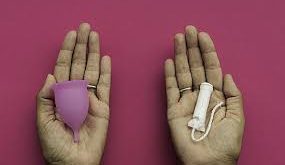As the saying goes, “health is wealth”, the core message it seeks to convey has acquired all the more significance at a time when humanity continues to battle a wide variety of health issues. Newspatrolling notes that notwithstanding the advancements made in technology and medical science, health issues continue to challenge mankind. These include a mix of age-old ailments such as tuberculosis and malaria and relatively newer ones like AIDS, Hepatitis, etc. In addition, there’s the threat of lifestyle diseases such as obesity, diabetes, heart disease, stroke, depression, etc., which are leading to devastating social & economic impact.
World Health Day 2016: Beat Diabetes
Every year on April 7, the World Health Day is observed by all Member States of the World Health Organization (WHO). This day came into existence in 1950 and since then it has been celebrated every year, providing an opportunity to all stakeholders to spread awareness about the importance of health in our lives. Every year, the WHO chooses a special theme for the World Health Day to focus on a specific area that may be impacting people’s health. The theme chosen for World Health Day 2016 is ‘Beat Diabetes’, in view of the rising number of diabetic cases around the world.
Diabetes Factsheet
On this World Health Day 2016, let’s endeavor to improve our awareness about the growing threat of diabetes. At Newspatrolling, we have sourced some facts about diabetes, which will help you gain a better understanding of the disease.
- Worldwide, there are around 350 million people with diabetes. In India, the number of diabetics is around 65 million. In the next 15 years, it is estimated that the diabetic count in India will increase to around 101 million.
- As per WHO, it has been estimated that by the year 2030, diabetes will become the 7th leading cause of death in the world.
- There are 2 prominent forms of diabetes – Type 1 and Type 2. The former is caused by a lack of insulin whereas the latter involves the body’s ineffective use of insulin. Type 2 diabetes is the more prevalent one, accounting for nearly 90% of all diabetic cases globally. There is also a third type of diabetes, called ‘gestational diabetes’, which occurs during pregnancy and can lead to medical complications at the time of delivery.
- Diabetes was directly responsible for around 1.5 million deaths worldwide in the year 2012. 80% of such mortalities occurred in low- and middle-income countries such as India.
- Diabetes can lead to blindness, cardiovascular diseases (CVD), kidney failure and amputation.
How to beat diabetes?
Newspatrollingwould like its readers to know that even though diabetes cannot be cured, there are certain steps that one can take to prevent diabetes or achieve better control if someone is already afflicted with the disease. Here’s how you can beat diabetes:
- Exercise is very important in tackling diabetes. Moderate to heavy exercise, 5 days a week, will ensure both prevention as well as better management of the disease.
- Dietary changes are equally important and will require you to stay away from sugary food items, as much as possible. You also need to avoid excess intake of carbohydrates andeat foods that contain more fibers. Portion control is another effective way of tackling diabetes. In this method, you eat 5-6 small meals during the day, instead of the standard 3 large meals per day.
- Lifestyle changes will require you to live an active life. Avoid sitting long hours at your office workstation since it may increase your risk of stroke and cardiovascular diseases. Take short breaks every hour to get up and walk for some time. You can also include Yoga in your lifestyle, as it has shown to effectively tackle diabetics.
- Regular medical checkup is necessary to monitor diabetes and ensure early detection of health issues linked to diabetes.
On the World Health Day, April 7, 2016, Newspatrolling requests all stakeholders to increase awareness about the rising threat of diabetes, the devastating impact on affected people and their families, and how to effectively manage the diseases through a combination of medicines and dietary & lifestyle changes.
 Newspatrolling.com News cum Content Syndication Portal Online
Newspatrolling.com News cum Content Syndication Portal Online




